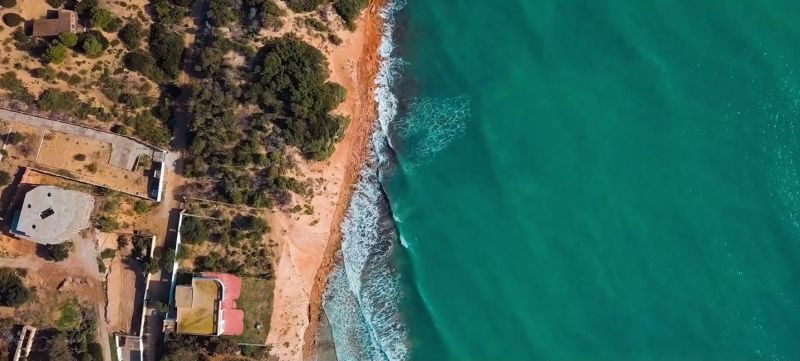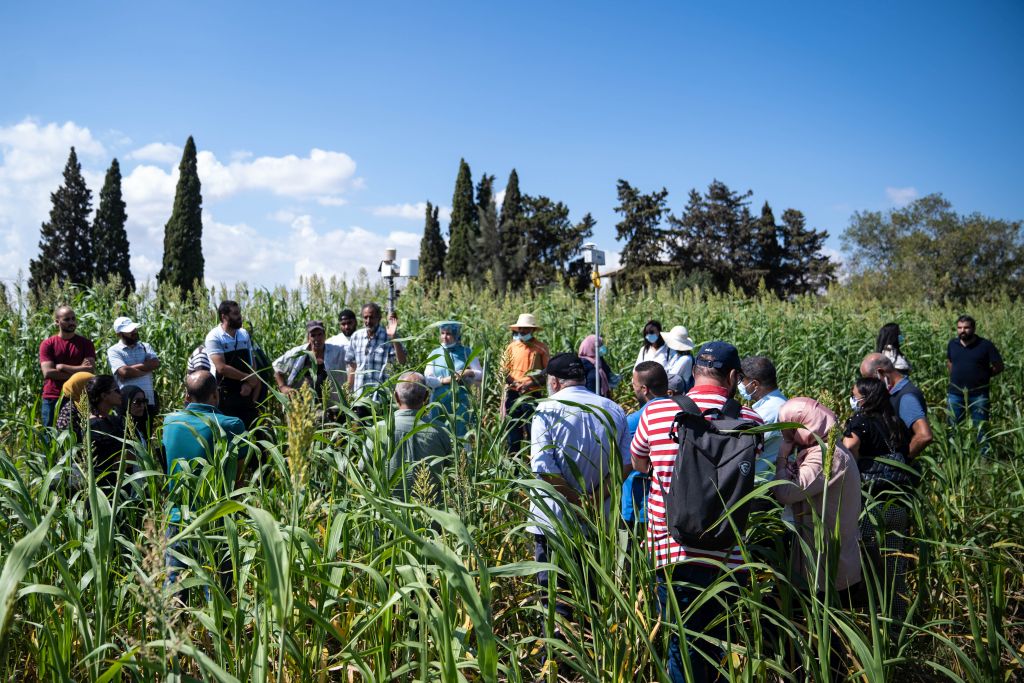The GEMWET project was launched in 2018, with the overall aim to protect Ghar El Melh’s natural treasures, promote sustainable development and contribute to local community’s prosperity. Within this framework, GWP-Med was responsible for two activities: the training and coaching of local youth to develop their green jobs ideas and the application of an integrated natural resources management system to support local farmers with their irrigation needs.
Watch the video on GEMWET project's smart irrigation activity.
Watch all the GEMWET project videos.
GEMWET has successfully concluded, and GWP-Med is proudly presenting the results of three years of field work. Applying a holistic approach to water management, working on the ground together with experts, users, and all related stakeholders, creating synergies and providing the necessary technical support and knowledge were the key elements for impactful interventions, contributing to natural resources security and building resilient societies.

Ghar El Melh
The area of Ghar El Melh, in the north of Tunisia is home to one of the country’s most precious wetlands. The Ghar El Melh lagoon was designated as a wetland of international importance under the Ramsar Convention in 2018, while the city Ghar El Melh is one of Tunisia’s cultural hotspots. Tourism, farming and fishing are some of the most important economic activities. However, the area’s ecological and cultural treasures are facing a number of pressures having a direct impact on local society’s well-being and economic prosperity. As a result, young people often leave the area in search for economic opportunities, while farmers struggle with scarce water resources.
Smart Irrigation Activity: the application of WEFE Nexus approach that improved productivity and saved water for local farmers
GWP-Med’s Smart Irrigation activity aimed at providing the necessary tools and technical support to local farmers in order to optimize the use of water for irrigation and achieve important financial but also environmental benefits. 6 plots were chosen whereby specialized equipment was installed consisting of:
- A weather station to measure the following parameters: solar radiation, air temperature, air relative humidity, wind speed and precipitation;
- 24 Sensors / probes for measuring soil moisture and soil temperature profiles at different depths;
- 12 Pulse water flowmeters and 12 solenoid valves for irrigation management
- An Information and Communication Technology (ICT) system that includes 15 gateways for real-time data transmission with recording of data and a data storage platform

In addition to the above, a GIS user-friendly online platform was created for each plot that provided an ”irrigation alert” to each farmer based on real time data measured in each of the plots.
In parallel, a number of capacity building activities, workshops, trainings and seminars were implemented engaging all directly involved stakeholders, associations as well as members of the local, regional and central government. As a result, farmers and local partners were trained on GIS techniques and equipment maintenance and policy makers from all levels of government participated in discussions on how to mainstream ICT in national strategies.
A great win!
The combination of the Water-Energy-Food-Ecosystem Nexus approach, together with the use of innovative technology in the plots that were selected to participate in the activity, had fascinating results: the average results of the spring crop planting campaign showed that water volume used for irrigation was reduced by 44% while productivity increased by 66%.
A reduction in the volumes of water supplied was recorded (in m3 / ha) varying from 14 to 40% with an increase in yield (in T / ha) reaching up to approximately 20%. As a result, productivity (kg / m3) improved up to 66%. Also the number of irrigations has been reduced to half in some cases (6 irrigations instead of 11 during the entire potato growing cycle). This reduces the workload of farmers and the cost of labor.
Green Jobs: creating economic opportunities for young people that contribute to the conservation of Ghar El Melh’s natural treasures

The aim of the project was to help young people materialize their green jobs idea, while at the same time promoting sustainable development and contributing to the protection of Ghar El Melh’s unique biodiversity. Together with WWF-North Africa, GWP-Med organized a number of capacity building activities, including trainings and personal coaching sessions, that enabled young entrepreneurs to develop their business, financial and marketing plans and provided support on administrative procedures and funding opportunities to ultimately set up their own Green start-ups.
Watch the video on GEMWET's green entreneurship activity.
Overall, 13 participants half of them women participated in the activities organized. As a result:
- 4 participants have now launched their Green start up
- 6 participants finalised their business, financial and marketing plans
- 1 has applied to receive a patent
The projects launched include waste recycling, the development of organic agriculture and hydroponic farming, processing of local fisheries products and distillation of aromatic and medicinal plants.
The ‘Conservation and Sustainable Development of Coastal Wetlands with High Ecological Value’ (GEMWET) Project aims to assist economic, socio-cultural and ecological development in the Ghar El Melh. It is a wetlands area known for its ecological and heritage richness (a Ramsar wetland and the first Arab and North Africa city to be recognised as Ramsar city), which, however, is facing a range of developmental pressures particularly under climate vulnerability and change impacts. Economic activities are mainly related to tourism, lagoon/coastal fishing and agriculture.
Applying principles of the Integrated Methodological Framework for Integrated Water Resources Management (IWRM) and Integrated Coastal Zone Management (ICZM), the project aims at strengthening governance and local capacities for ecosystems’ monitoring and management; promoting the sustainable use of water resources; contribute fighting urban and industrial pollution; assist strengthening traditional farming practices; promoting responsible tourism; supporting the Ghar El Melh Coastal Development Programme; and engaging youth. With the support of the MAVA Foundation, the GEMWET Project is implemented under the lead of WWF North Africa and in partnership with BirdLife Europe, Association "Birds Friends", GWP-Med, UN Environment / Regional Activity Center of the Priority Actions Program (PAP/RAC), National Agronomic Institute of Tunis, Tour du Valat and IUCN.
